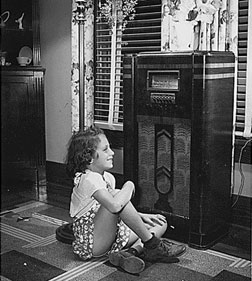 The newspaper industry and its allies have many grievances against the Web. They say the Web is parasitic, that it copies newspaper content and steals its advertising. They claim that Web creators will never provide the deep reporting that democracy needs and that newspapers provided before the Web arrived and ruined the media neighborhood. They want to tame the Web by rejigging copyright law. And they protest that the Web has undermined quality journalism by teaching readers to expect news for free.
The newspaper industry and its allies have many grievances against the Web. They say the Web is parasitic, that it copies newspaper content and steals its advertising. They claim that Web creators will never provide the deep reporting that democracy needs and that newspapers provided before the Web arrived and ruined the media neighborhood. They want to tame the Web by rejigging copyright law. And they protest that the Web has undermined quality journalism by teaching readers to expect news for free.
Whatever the merits of these complaints, it's not the first time established media have accused new media of bringing on Armageddon. In her deeply researched 1995 book, Media at War: Radio's Challenge to the Newspapers, 1924-1939, scholar Gwenyth L. Jackaway charts a similar set of complaints leveled by newspapers against the upstart medium of radio in the 1920s and 1930s.
The then-and-now media parallels don't line up perfectly, but a review of the war between newspapers and radio provides something just this side of enlightenment and helps frame the underlying issues in the current fight for advertising dollars. Along the way, Jackaway establishes that the newspaper industry was as shameless in the 1930s as it is today and hints at how this modern conflict may resolve itself.
Like today's Web, radio harmed newspapers commercially by disrupting the institutional identity they had carved out, Jackaway writes. The upstart media forced journalists and readers to ask, "[W]ho is a journalist? What is news? How should the news be delivered? What are the rules regarding the form and content of an acceptable news message?" Radio also fractured the existing institutional structure that partnered newspapers and wire services to deliver national and regional news. Radio could easily bypass newspapers and funnel news directly from the wire services to audiences. And, last, radio battered the institutional function of newspapers with live broadcasts of everything from sporting events to political conventions, allowing listeners to hear the news as it happened instead of reading about it 24 hours later.
Although not completely analogous to today's tussle between the newspapers and the Web, the media battle in the 1920s and 1930s echoes its points of contention. Back then, anti-radio newspapers (newspapers that didn't own radio stations) were furious over the unauthorized use of newspaper and wire service copy, just as today's Associated Press and newspaper publishers are raging over what they regard as the theft of their copy and headlines by Web sites and search engines like Google.




No comments:
Post a Comment